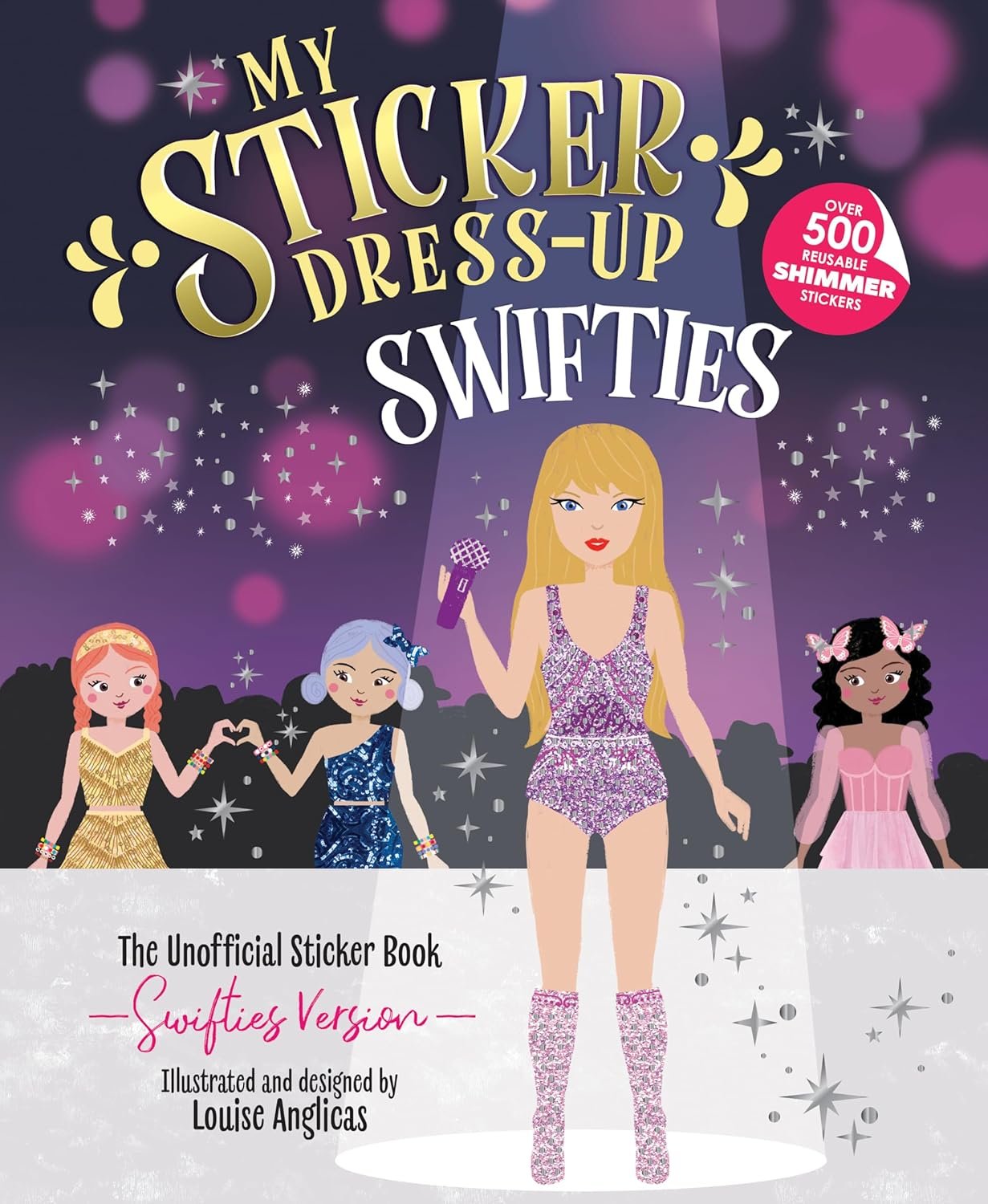Light through the almost-closed curtains striped the dining room like the bars of a prison cell as the desert heat stirred from its slumber. No one was happy to shun the early sun, but the High Circle’s secrecy wasn’t fueled by paranoia—when Zafira had peeked through the window of her room, she’d caught flashes of silver at every shadowed street and rooftop.
Zafira had never thought she’d see the Sultan’s Guard in person, their shiny cloaks like beacons in the browns and golds of the desert. She never thought she’d be the object of their pursuit, either. They were vigilant, Aya had warned, searching for the zumra and their quarry.
A ruckus echoed from outside as a street vendor bargained with a woman over fruits from his rolling cart. It was how Deen would argue, slipping the merchant extra coins afterward anyway. You have to pay them for the hassle.
“Eat,” Lana said from Zafira’s left on the fringed cloth spread out for the meal, pushing a plate of buttery harsha her way.
Kifah nodded beside her, the crate with the hearts between them. “You’ve got to keep your strength up.”
Aya watched the exchange with that strange dreamy smile of hers. “All of us do. In sustenance and unity, for we are stronger together. That was the basis of the High Circle. First, when it was a council of safin affairs under Benyamin and, later, when it was the smallest of armies under Altair.”
She looked away, jaw tightening with a memory.
Zafira didn’t know what compelled Lana to reach for Aya’s hand, but when she did, Aya turned her palm and laced their
fingers. It was different, hearing about their bond through Lana’s lips and seeing it with her own eyes.
“Forgive me, my loves,” Aya said. Her eyes were wet, even as she gave Lana a tender smile. “Of all the losses I have endured, this … this is one I do not yet know how to conquer.”
“Perhaps it’s meant to be accepted,” Nasir reflected quietly. “Not everything requires a battle, least of all grief.”
Aya considered him. “Spoken as one who has endured.”
Roohi. That was what she had said last night.
Baba used to say it, too, and Umm would give him that one, fond smile she devoted to him.
Habibi. Hayati. Roohi.
My love, my life, my soul, the words meant, but their meanings went deeper than that.
Habibi was for friends and love that was real enough.
Hayati was when love became an all-encompassing thing.
Deeper and deeper, until one became the other’s life.
Roohi was when a soul twined with its match and loved with the force of a thousand suns. When it slipped beneath the heart and tangled in the very fibers of an existence.
That was what Baba and Umm had, once. What a young Zafira had wanted, until the love her parents shared shattered them both, scattering shards of their souls into the desolation of the earth.
She had thought of them last night beneath the stars, beside a boy with unkempt hair and a question in his gray, gray eyes. She had finally seen the sprawling palace that belonged to the sultan, the lights suspended by intellect, something far more magical than magic could ever be, and yet—
It paled beside him, her prince. “Are you all right?”
Skies. Did he have to sit so close? The harsha in his hand was perfectly halved. She had noticed that about him. The way he hung his clothes behind a chair when she was content with piling them in a heap. The way he broke his bread into neat pieces before lifting it to his mouth, whether it was manakish or flatbread or harsha.
“Never better,” Zafira said, and Lana made a sound that was dangerously close to a snort.
“He looks like he’d rather eat you instead,” Kifah whispered in her ear and rolled her eyes when Zafira shrank away. “It was a joke, Huntress.”
The front doors flew open, and Zafira clutched her satchel as Seif marched inside. Aya dropped Lana’s hand and quickly moved the dish of pickled lamb from view. Apparently, the cold-blooded safi didn’t approve of eating lamb, or even hunting animals for that matter.
He slammed something down on the side table, and Aya paled at the sight of it. Zafira squinted—it was a tiny bottle, empty, but for a smear of crimson. Blood?
“We’ve found nothing. No ships in the harbor, no sign of the Lion whatsoever. We’ve been at work all night.” Seif paced and shot a glare at Nasir. “While you were off—”
“Careful, safi,” Nasir said, voice low. “Running your mouth can be dangerous, and immortals are dying like flies.”
Aya’s wide eyes were curious. “Where were you? You were not to leave the house.”
“Surveying the vicinity from the city’s highest point.”
If only I could lie so easily, Zafira thought. Then again, it wasn’t entirely a lie.
Seif scoffed. “With her?”
“Are you implying that women cannot climb?” Nasir leveled him with a look before Zafira could lash out.
Seif’s frustration manifested in a growl, and from the ghost of a grin on Nasir’s face, Zafira could tell he finally understood why Altair treated the art of infuriation like it was his sole purpose in life. Lana struggled to hide a laugh.
“He may not be here yet,” Kifah said, “but that doesn’t negate the inevitable.”
He comes for us. The safin are unaware.
“The Lion of the Night,” Lana whispered, and Seif shot Aya a look that said We should have left her in the snow. Zafira decided then and there that Seif would be the last person she would ever protect and the first she would feed to a dandan.
Kifah studied Lana. “And it’ll be chaos on the streets as the news spreads across Arawiya.”
Chaos already clung to the air, in the dust that stirred as the people rioted, in the taxes that suffocated.
“Yet Sarasin will be fine,” Seif muttered.
“How?” Zafira asked, annoyed. “Who will protect its people?” The Sarasins had suffered ever since their caliph had been assassinated. The caliphate had always been a dark place
—literally, too, with its dark sands and sooty skies—but once the throne had been emptied in cold blood by order of the sultan and the armies taken under his control, the uncertainty had strung tension tight and fearsome.
Seif ignored her. Typical.
Aya rose. “An established mortal by the name of Muzaffar. He was well-known in merchant circles, but while you were on Sharr, he began making a name for himself among the common folk, too. Placating them, providing for them. His men keep the peace, and that is more than many can ask for.”
“A fragile peace,” Nasir said quietly. “Barely enough to withstand the Lion.”
“Not all will fear the Lion. Even in the past, during his reign of darkness, some believed he signaled the beginning of a new age,” Aya said, pearls gleaming, and had she been anyone less pensive, Zafira would have mistaken her fervor as support for the cause. “They claimed he was the bearer of a golden era of greatness, and had the Sisters not clung to the old ways, we would never have been led to this dark point.”
“Right.” Kifah dusted her hands and rose. “We need blood.”
“There’s an infirmary nearby,” Lana said without thinking twice.
“Si’lah blood,” Kifah clarified with a note of impatience. “Blood with magical properties. You can’t find that in an infirmary.”
“What for?” Zafira asked, though the dread in her veins was answer enough.
Kifah met her eyes. “For you. For our compass to begin working again. You can easily track down Altair, the Lion, and the heart in one go.”
Easily. As if they were in a basket waiting prettily for her to snatch away.
“That requires dum sihr,” Zafira said. She pursed her lips, feeling guilt for her irritation over Kifah presuming she had no qualms about using forbidden blood magic.
“No.”
The command was sharp, the edges strung with loss. Everyone looked to Aya, who shook her head, something like madness in her gaze.
“No. No dum sihr.”
Lana stepped forward. “Ammah—”
“What he wants can never be as terrible.” Aya’s voice cut like a lash. It took Zafira a moment to understand who he was:
the Lion.
The price of dum sihr is always great. Benyamin’s words on Sharr. She remembered then that he had used blood magic in an attempt to save his and Aya’s son. That he had failed. That pain made reckless fools of them all.
“What he wants,” Kifah spat through gritted teeth, “is vengeance on your kind and an Arawiya fettered by darkness.”
A home for his people, the Jawarat said.
Violence was not how one established a home.
Aya continued to shake her head, hysteria wavering in her eyes. Lana reached again for her hand, and Zafira saw Umm then, folded in her sister’s arms, fragile and lost. She murmured something too soft to hear, and Aya shuttered her gaze, collecting herself enough to press her lips to Lana’s brow.
Zafira’s limbs were suddenly restless, her eyes prickling.
Nasir sat in silence, gray eyes unreadable. He lifted his arm and dropped it. Turned away with a sigh.
“My mother feigned her own death. My father pressed a poker into the fire and branded me. Forty-eight times. Belittled me. Likened me to a dog.”
He spoke in the voice that looped with the darkness, the one that was at once quiet and imperious.
“It was magic that did it. Magic that gave the Lion a conduit to my father. Magic that made my mother forsake the Gilded Throne.” He looked to his hands, breathing tendrils of shadow. When he exhaled a broken laugh, darkness curled from his mouth. “Yet here I am, contributing to its restoration.”
Zafira knew he had suffered, she’d seen it firsthand in the Lion’s palace on Sharr. Yet she had never linked his suffering to magic.
How was it that the thing she loved so deeply, craved so fiercely, had caused him such undeniable pain?
Aya looked as if she wanted to reach for him, before she remembered who he was and smiled instead.
“This fight is no ordinary battle,” she placated softly. She drew a careful, trembling breath. “We must do what is required of us.”
Seif shook his head and gestured to the empty bottle he had brought in. “We had blood. I’ve used the last of it to protect the house, and it will wear out quickly. The Silver Witch is on her way to the Hessa Isles. In the time required to reach her and extract a vial of her blood, the Lion may very well come to us. Worse, every moment the hearts spend outside the minarets puts them at risk of perishing. An entire journey with the woman, and you did not think to ask her?”
“An eternity of magical knowledge, and you didn’t think to acquire more of it yourself?” Zafira fired back. Skies, this safi.
“What about Bait ul-Ahlaam?” Lana asked, and Zafira paused, the name familiar. The House of Dreams. Nasir had asked the Silver Witch of it on the ship, and Zafira remembered her vexed reply. She felt like an idiot, knowing nothing of it when her little savant of a sister did.
Seif closed his eyes and released a slow, exasperated exhale.
“I’ve seen drawings of it in a book,” Lana hurried to explain. “It’s in Alderamin, isn’t it? You can find anything there.”
Aya canted her head. “The House of Dreams thrives because of its exaggeration, little one. I do not think anyone there will have a vial of si’lah blood.”
“No. Bait ul-Ahlaam is an exaggeration to those who aren’t looking for anything in particular,” Kifah said, to Lana’s relief. “My father’s made the trip from Pelusia more than once, and
he always finds what he wants. Every daama time. Unfortunately.”
“I thought your father didn’t like magic,” Zafira said.
“He doesn’t,” Kifah said bluntly. “It’s a shop full of oddities, magical and non. Every tincture and herb once readily available in Demenhur. Soot from the volcanoes of Alderamin. Black ore. And it’s ancient. If any place would have a vial of si’lah blood, it’s one that’s been around as long as the Sisters.”
“It is possible,” Seif ceded, and Lana couldn’t contain her wide grin. Something in his gaze said he knew the place more intimately than through hearsay. Possibly been there himself, like the Silver Witch. “The keeper is known to … bargain.”
He spoke with the same hesitance, too. As if they had both discovered what they had needed and given far more than they had expected to.
Still, as much as Zafira loved magic, she wasn’t certain she wanted to commit the crime of dum sihr for a short burst of it. The last time she had slit her palm, she’d bound herself to an immortal book. Seif started pacing again, and she struggled to breathe. She headed for the foyer, feeling for the Jawarat in her satchel.
You fear, bint Iskandar.
“Should I not?” she mumbled. Speaking to the book aloud made her feel infinitely less insane than when she spoke to it in her head and the daama thing responded.
We are of you. We will protect you.
As if a book could protect her from anything. According to the Silver Witch, she needed to protect it, or she’d die with it.
Fear is but a warning to heed.
“A book that literally spews philosophy. Yasmine would love it,” Zafira said dryly, realizing a beat too late that the
others had followed her.
“Mortals. Their lives are so short, they resort to speaking to themselves,” Seif drawled to Aya.
Zafira nearly growled. “My name is Zafira.”
“Don’t bother,” Kifah interrupted. “He sees our round ears, and we’re suddenly walking corpses. At least we know when it’s time to get in our graves.”
Useless talk will take us nowhere, bint Iskandar. “Are we going to try the market?” Lana asked. Breathe.
“Which of us will make the journey?” Kifah’s voice distorted.
Inhale.
“The bridge across the strait remains intact.” Aya’s words floated from far away.
Exhale.
“Give us the hearts and the Jawarat,” Seif said as Nasir watched her, only her. “We’ve put too much trust in mortals, and—”
Something inside Zafira snapped. A scream raged through her veins. Her hand twitched for an arrow.
We
are not mortal.
Everyone and everything stilled.
She flinched at the sudden, piercing attention. Blood rushed through her ears and the fluttering curtains laughed.
“Okhti?” Lana asked.
Zafira blinked. Kifah made a strangled sound, but the first to take a cautious step toward her was Nasir. As though Zafira were an animal he was afraid to startle.
“Are you certain you’re all right?” He looked at her as if not a single other soul existed on the earth.
She could not meet his eyes. “Why wouldn’t I be?”
“You—” Nasir started. “You referred to yourself as we. As two people. You said you aren’t … mortal.”
“I didn’t say that. I didn’t say anything.”
There was a sinking in her stomach. The five of them stared as if she were on some sort of stage, making a fool of herself. She stepped back toward the entrance, the long handles of the double doors curving into her back.
Nasir took a step closer. “Give me the Jawarat.”
“I don’t have it,” she lied. It was in her satchel; they couldn’t see.
“Zafira.” Nasir’s tone was meant for a disobedient child. “It’s in your hands.”
She looked down. Slants of light set the lion’s mane on the Jawarat’s cover ablaze. She tightened her grip around the book that had used her mouth to speak senseless words. Sweet snow below, what was happening to her?
She looked from Aya’s curiosity to Seif’s smugness, then to Kifah’s confusion and Lana’s worry, and finally to Nasir. It was the pity in those gray eyes that did it.
Her resolve fractured. Fell.
Leave them. Freedom rests beyond these doors.
Zafira threw open the doors and ran, recalling this same panic from when she raced through the oasis on Sharr. Wind against her limbs. Blood loud in her ears. Fragile sanity threatening to unravel.
She was ashamed that Lana had been there to witness it.
Kifah, too.
“This is all your fault,” she hissed.
Stop.
Like a fool, she listened, stopping just beyond the gates of the house, and the reminder that she was in Sultan’s Keep hit her with a force. The cobble of hewn stone was warm beneath her bare feet. Sweet snow, the western villages of Demenhur were slums compared to this. It was a masterpiece of time and diligence, from the detailing on the ground to every carved bit of the sprawling houses surrounding her. Even the sky looked richer, the blue clear and vast. There was no difference between her and an urchin hiding in the richer end of the sooq. Her blue-black qamis, shorn from a dress that had cost one too many dinars long ago in Demenhur, felt like rags.
They—
“Stop,” Zafira hissed. “Don’t tell me anything.”
The sudden silence was filled with the Jawarat’s petulance and a guilt-inducing shame. Perfect. Shadows stretched, warning her that she wouldn’t be alone for long. Voices carried. Farther down the road, she could make out the stalls of a sooq tucked between buildings for shade, and the last thing she needed was for someone to demand who she was.
She hurried in the opposite direction, finding a small alcove created in the angle of space between three of the massive houses. Sunlight slanted within the confines of tan stone just so, illuminating an arch set into one of the walls and built of dazzling glazed tiles in hues of blue and red and gold, like a doorway to a hidden world. She stepped close, only to find it wasn’t a door but a fountain, a pool of glittering green water rippling beneath it.
It was beauty that felt delicate, a moment suspended out of time. Beauty she couldn’t appreciate.
“I don’t know why I listen to you,” she hissed.
The Jawarat didn’t answer, and Zafira pressed herself against the wall to collect her breath. A sand qit rose from its perch near the fountain, eyeing her with distrust.
It is truth. We are not mortal.
Perspiration trickled down the back of Zafira’s neck as the sun ratcheted up the heat.
We are immortal.
“And suddenly I am, too?” she asked angrily.
We are bound, you and us. The span of our life is yours.
“That … that isn’t how it works.”
Can pith made papyrus speak to a witless girl?
She gritted her teeth, ready to fling the Jawarat into the fountain. “What do you want from me?”
There had to be a reason it spoke to her, goaded her. She wasn’t like the Lion or the darkness in which the Jawarat had festered. She was powerless, as Seif continuously repeated. Perhaps it was time to entrust Aya with the book and—
A hiss reverberated in her ears, and she dropped the Jawarat in her fright. It fell open on the dusty stone. She looked about sharply, but only the fountain gurgled softly, dust dancing in the slanting sunlight.
Then the book slammed itself shut.
Bint Iskandar.
The words were a terrible moan. Fear crept into her veins.
Let us show you what you can do.
The alcove faded away, ebbing light giving shape to the snowy stretch of a village and a cloaked woman in its center. The sooq looked familiar, as did the scant, spindly trees. Demenhur. Yet Zafira herself wasn’t in the caliphate. It was as
if she were looking through a spyglass into another world, an observer.
The green leather of the Jawarat was clutched in the woman’s left hand, the fingers of her right twisting to the skies, and words Zafira couldn’t understand slipping from her tongue. An incantation, almost. A spell.
Shouts rang out as people ran from the sooq in fear, fleeing from her—the woman—as she brought her fist down suddenly.
And the ground surged upward.
The circular jumu’a meant for gatherings erupted. Stone and debris hurtled toward the surrounding stalls and struck down screaming villagers. Several men ran toward the woman, some with tabars and swords, others hefting bricks and whatever makeshift weapons they could find.
Even as they neared, the woman did not move. The biting chill stirred her cloak.
She merely flipped to another page of the Jawarat, and after a few breathless moments, Zafira watched as she arced her hand down.
Rending the men in half.
Screams broke out anew, bodies fell to the ground with sickening thuds. No, Zafira tried to shout, to stop this senseless violence, but her mouth was sewn shut. She struggled to breathe, bound to this terrible vision, laa, nightmare. For that was what it was.
A nightmare.
The men fell, one after the other. Halved by her terrible power. By the Jawarat’s power. The grisly image seared itself into Zafira’s skin. More men dropped to their knees, their own
swords through their guts. The ruined sooq turned crimson as blood flowed freely, pooling around the woman’s feet.
Silence fell, and with a satisfied hum, she turned, knocking back her hood with a bloody hand.
And Zafira stared at herself.
It was her, down to the ice in her eyes and the angry set of her brows. Exactly her, except for one thing.
Her hair was the color of splintered bone.
A silver vial filled with something thick and crimson hung around her neck, and when the white-haired version of herself slid the Jawarat beneath her cloak, Zafira saw a fresh gash across her palm, nestled in a sea of scars, flesh knitted back. Dum sihr. She strode to a black steed, boots slicing snow before she mounted and disappeared into the streets.
Leaving behind a tomb.
The lavender door of Bakdash hung on its hinges. Araby’s colorful sweet shop was a pile of rubble. She saw men, boys, children—dead. All of them. Struck with stone, cut in half, innards and organs spilling out, bleeding, bleeding, bleeding.
Because of her.
“Please,” she begged. She didn’t know to whom she begged; she merely repeated the word until her surroundings blurred and she lost her balance.
And then, nothing.
Zafira dug the heels of her palms into the stone and lifted her head with a wheeze. The alcove surrounded her. The Jawarat was by her knees.
Do you see, bint Iskandar?
She only saw something far more sinister than the Lion of the Night. Something small and unassuming, with centuries of memories from Arawiya’s most powerful beings, and nearly another with far worse: the evil that had seeped within Sharr.
And it had controlled her.
“Why?” she whispered. “Why me?”
The purest of hearts will always triumph the darkest of souls.
Footsteps hastened just around the bend. Zafira closed her eyes and gathered both her breath and the Jawarat before rising on shaky legs. Three figures drew near, their cloaks coruscating silver. The Sultan’s Guard. Khara. She flattened herself against the wall, but they hurried past the alcove without so much as a glance, their low murmurs urgent, hands gripping the simple black hilts of their scimitars.
“Show me something useful,” she hissed at the Jawarat. “Show me what the Lion can do with a single si’lah heart.”
Nothing.
Laa, peevish silence.
With a growl, Zafira willed the Jawarat’s vision away and crept after the guards as a chanting began, snippets of shouts and demands carrying along the errant breeze. The Jawarat’s insistent voice broke through them.
We will be seen.
“Now you can talk?” Zafira asked. She darted from the shadows of one building to the next, but she didn’t have to live here to discern this emptiness as unusual. It was the sultan’s city. It was meant to be bustling at all times, not eerily quiet here and noisy there. Before an alley, she paused, squinting at the square up ahead.
Dread halted her breath. Chants met her ears.
Taxes kill. Break the till.
Protests. People were protesting, marching—running in the direction of the palace. Toward her.
Her heart leaped to her throat, and her fingers slickened around the Jawarat as she turned and made for Aya’s house,
the heated stones scorching her bare feet. She stumbled on a pebble with a curse. Don’t fall, don’t fall. She thought of the Arz and her hunts, when not even her prey heard her agile footfalls.
The distance between her and the crowd grew, and she allowed herself a moment to pause. A terrible mistake.
An explosion shook the earth, and Zafira fell to her knees as a stampede of people charged toward her.





